January 7, 2021 Leave a Comment
The world has changed a lot in a year, and some changes are long term. Here are some tips for thriving while adapting to the new normal in a COVID-19 world.
2020 is over and it was a tumultuous year, to say the least! COVID-19, which we first thought was a disease that affected a small part of China, took over the world in a matter of weeks and before we knew it, the entire planet went into lockdown.
Our lives have changed completely, from wearing masks everywhere to making a sanitizer a regular part of our day. Those are the minor changes. The pandemic has also transformed the economy, jobs and modes of travel.
While we’re still waiting for everyone to get vaccinated, we’re slowly trying to accept that this is going to be the new normal for a while and we may as well adapt. Arundhati Roy says that the pandemic is a “gateway between one word and the next”. The WHO has asked us to move from “the new normal to a new future”. And that’s exactly what the world is trying to do.
As Albert Einstein said, “The measure of intelligence is the ability to change” The human being is both intelligent and resilient; we’ve overcome all kinds of disasters and we’re still standing! If you’re finding it difficult to deal with the fact that some of the changes brought about by the pandemic may be long term, we’re here to help. Here are some ways you can not just survive but thrive, while adapting to the new normal in a COVID-19 world.
Adapting to the New Normal during COVID-19

Mindset

The biggest change you need to make is regarding your mindset. We tend to be resistant to change, even if it’s temporary. Now that we know some of these changes will be long term, it can be upsetting. Many of us crave for our pre-pandemic lives, especially if you enjoyed socializing and traveling.
However, there’s no point in wishful thinking, and the reality is that COVID-19 is still very much relevant, with threats of new strains emerging. We have to accept the fact that this is a new way of life, and we’ll have to work within these restrictions to live healthy and happy lives. What we need for this is a ‘coping mindset’.
Thankfully, our brains are already wired for this. As we experience new emotions and thoughts, our brain builds new neural pathways. With time, the brain gets used to these new pathways which helps us adapt easily to the new circumstances.
The most important thing for parents is to lower your expectations. Like, really make your standards as low as you can. Forget about the perfect parent or the perfect home or the perfectly balanced meal. This life is not easy for anyone, regardless of what people post on Instagram. Everyone is struggling, so don’t blame yourself if you feel like you’re falling behind. Focus on each day at a time and what you can do right now rather than looking too far into the future.
Another thing to consider is information overload. News about the pandemic is pouring in from everywhere, some of it false and misleading. It’s okay to be confused about things – just make sure you get your information from reliable sources like the WHO or CDC websites. If it all gets overwhelming, take a break from news and conversations about COVID-19.
Relationships
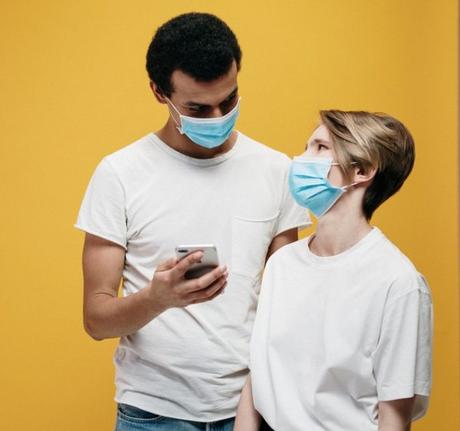
Being with family is joyful and relaxing. However, being stuck with them all day, everyday without a break can be overwhelming, particularly if you have small children or a large, extended family or live in a small space. This can take a toll on your mental health and your relationships.
Traveling is still not something many people are ready to undertake, so it looks like we’re all going to be home for the foreseeable future. Considering this, it makes sense to practice a few behaviors that’ll make life at home much more enjoyable.
Make politeness and kindness your best friends while dealing with anyone in the family, whether it’s your spouse, children or elders. Everyone is frustrated and is going through their own anxieties, so be kind. Use please, sorry and thank you freely, so even little kids pick up on the habit.
Try to have all meals as a family, with devices kept aside. Schedule breaks for alone time with each member of the family – a morning walk with your Dad, story time with one child, play time with another and catching up with your spouse before bed. If you can, make it a point to connect with at least one person a day. It could be a colleague, a friend or a distant family member. Try calling them instead of texting – it is so much better.
Work
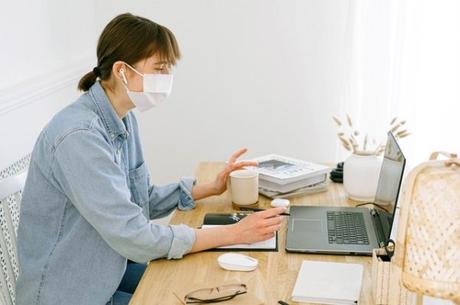
When people starting working from home at the start of the pandemic, many companies worried that productivity would decrease, but the opposite happened. As a result, many companies including Microsoft, Twitter and Fujitsu have decided to make work from home a permanent feature, even when the pandemic is over.
While this may be good news for the organization, it may not be so good for the employee. According to a United Nations report, people who work from home tend to work longer than they would at office, and it is harder for them to ‘switch off’ at the end of the work day. This has started leading to employees getting burnt out. With job insecurity being at an all time high, people are also afraid to take breaks from work, and this worsens the situation.
To avoid this, try to set aside fixed times for it and let the rest of the family know that you are not to be disturbed during this period. Get dressed for work at the start of the day, and change into your pajamas when you log off in the evening. During your workday, schedule in breaks for coffee and lunch, so you have an opportunity to get refreshed. If both spouses work and you have babies or toddlers, take turns to alternate working and managing the baby.
If you have to work outside, none of these will affect you, and you’ll most probably be following your pre-pandemic work routine – with extra hygiene practices. You may need to factor in some extra time to sanitize everything once you get home, especially if you’re among the frontline workers like doctors, policemen or if you’re in a job that puts you in constant contact with people.
Finances

We’re all aware of the huge impact the pandemic has had on the economy – on an international level as well as personally. Many people lost their jobs, while many who employed others continued to pay salaries even when there was no work, during the initial phase of the lockdown. While some expenses like eating out and traveling got automatically cut, some additional expenses cropped up, like using cars or bikes instead of public transport. Some of us have also resorted to online retail therapy to alleviate our stress, leading to unnecessary purchases.
Obviously, one of the main steps people have taken during 2020 is to cut down on frivolous expenses wherever they could. Besides that, people have also realized the vulnerability of their jobs, and are taking up side hustles or side ‘gigs’ to make more money. This is one of the wonderful examples of human beings adapting to their situations!
If you have a talent, skill or even hobby that excites you, consider turning it into an income generating opportunity. With everyone working from home, there is really no limit to what you can offer, wherever you are in the world. This is also a good time to take online classes to brush up your skills so that you can provide quality services or products which people would be happy to pay you for.
Children
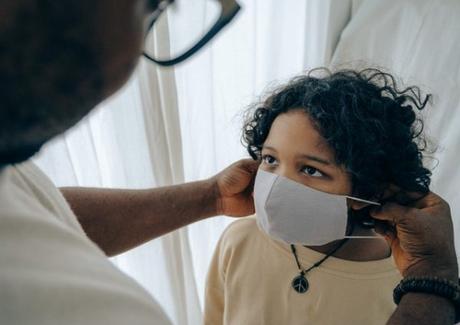
Kids lives’ are probably the ones that have changed the most during COVID-19, with schools completely shutting down and still staying closed. Overnight, kids were forced into a new system of online learning, where they couldn’t bond with their friends, share their worries or simply enjoy the classroom environment. Reading from screens and trying to make out what the teachers are writing is also straining their eyes and causing headaches.
While the idea of not having to get ready in the morning and go to school may have seemed exciting initially, that excitement has worn off and the isolation is beginning to show its impact on children. Unfortunately, things being as they are, online classes may have to continue, as reopening schools could prove to be a potential disaster.
We can however, do a few things to make life easier. First of all, ensure kids have a set routine, and if possible, let them get dressed every morning, even if not in their school uniforms. Ensure sufficient sleep and a balanced diet. As for eye health, check out our post on tips for managing online classes.
Some kids may experience anxiety about the pandemic. Educate children about COVID-19; the right information often helps remove some of the stress. Make sure they get enough play time and are not overwhelmed with school work and classes. Have them connect with their friends via video call once in a while, so they stay in touch.
Health Care
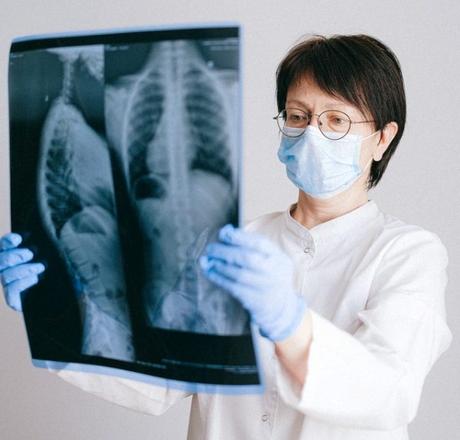
One of the sliver linings of the COVID-19 pandemic is how it’s shown us that healthcare deserves much more importance than currently gets, on personal, national and international levels. Regions with well oiled primary healthcare facilities have been able to manage the spread of the pandemic more effectively, while other regions have suffered.
On a personal level, we’ve realized once again that we cannot take our health for granted – a realization that has come rather late to many of us! When we were pushed into lockdown, more people began cooking from home, which was a good sign. However, with food deliveries resuming, we’ve resorted to ordering in again, partly as a mode of comfort.
When gyms closed up, we also realized that we could work out at home well enough, and that expensive machines weren’t really needed. If you have a yoga mat, a pair of dumbbells and a pair of shoes, you have everything you need. Gyms have started opening up, but it is quite tricky to use them – especially as you are not supposed to exercise while wearing a mask.
Another major adaptation we’ll have to make is in our visits to the doctor. More and more doctors are offering telemedicine services, which are safer unless its an emergency. While it is best to limit visits to hospitals and clinics, it is dangerous to self medicate. Also, it is absolutely important to ensure that babies and children get all their vaccinations in time – skipping them due to fear of COVID-19 can have disastrous effects on the entire community.
Travelling
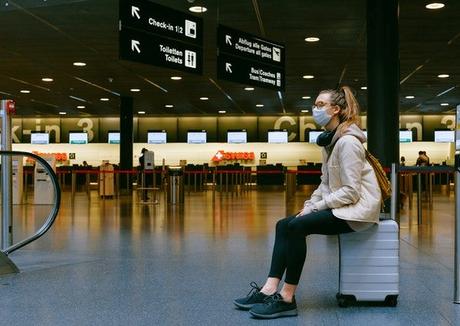
When 2020 started, many of us had grand plans for traveling and visiting new places, all of which crashed when COVID-19 took over the planet and the world went into lockdown. While most of the restrictions have eased up, some people are still hesitant to set out. That said, not traveling is also taking a toll on mental health, and many have decided to go ahead with their travel plans while taking the right precautions.
Experts still recommend staying at home since traveling does put you at a risk. However, if you do choose to travel, make sure you carefully consider every part of your journey, from the moment you step out of your door till you get back home. Avoid public transport like trains, buses and the metro – they can get crowded, especially in a country in India.
When booking a hotel, do your research and choose one that follows all COVID-19 guidelines including sanitization and social distancing. This is not the time to skimp on your hotel – larger chains generally have more strict hygiene protocols in place.
Taking your car and going for a road trip seems to be the safest way to have a short getaway, especially if you pack your own food and avoid stopping in between. Experts say that the risk is relatively low during air travel, but if you’re going to another country, you may have to take additional precautions including a COVID-19 test.
Local COVID-19 guidelines continue to change, so booking a trip many weeks in advance always poses the risk that you may have to cancel at the last minute. For this reason, it is recommended to book closer to when you intend to travel and to always book refundable rates so you don’t lose out if your trip gets cancelled.
Entertainment

The entertainment world has changed completely ever since the pandemic began, as malls and theatres turned into large empty spaces. While malls opened up a while ago and theatres are opening up at half their capacity, it still makes sense to be wary of crowds.
Human beings are social animals and staying in isolation for an extended period of time can have adverse consequences, especially for those who live alone. This is the reason experts think that opening up places like malls and parks is important, while following proper social distancing guidelines.
Some countries have opened up beaches while roping of sections to ensure adequate distance between visitors. Restaurants have separated tables and some have made little cubicles. As for movies, people have discovered the huge amount of quality content on streaming platforms, which means that they’d rather stay home than go to the theater.

These are just some of the ways we can thrive while adapting to the new normal, or as the WHO calls it, the ‘new future’. Many experts recommend continuing to use masks and social distancing even after getting vaccinated, to stay on the safe side and to ensure that the virus is 100% eradicated. Let’s follow all the guidelines from our experts and governments and take our own steps to ensure our families are safe, healthy and happy.
WhatsAppShareEmailTweetPinFiled Under: Covid, Parenting Tagged With: coronavirus, covid, health, parenting, parenting tips
